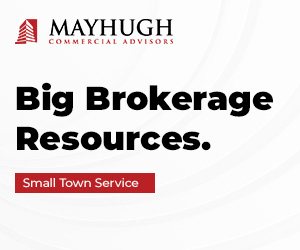

Vacation Homes and 1031 Exchange Tax Deferral
ROUND TABLE March 10, 2020 admin

Millions of property owners own second/vacation homes in Florida, which very likely have appreciated significantly over the past decade. Although appreciation boosts return on investment, it can also lead to significant capital gain taxes owed at the time of disposition. Many of these second/vacation homes may qualify for 100% tax deferral at the time of sale under IRC Section 1031, a powerful tax deferral strategy which has been in the tax code since 1921.
Not all second or vacation homes are treated the same under the tax code. A second home that has never been rented is not eligible for 1031 exchange tax deferral as this type of property is not considered held for investment purposes. However, Florida property owners have a couple of options to obtain full tax deferral by performing a 1031 exchange in the future. First, they could convert a second home into a rental property held for investment that meets the requirements of Revenue Procedure 2008‐16 summarized below. Alternatively, if they already meet the requirements of Revenue Procedure 2008‐16, they could perform a 1031 exchange from a vacation rental into another property held for investment and defer all capital gain taxes. These latter two alternatives allow Florida property owners to defer capital gain while improving their investment position via a Section 1031 tax deferred exchange.
Revenue Procedure 2008‐16 provides useful guidance on the characterization of vacation property and may also be useful for planning purposes, such as the conversion of a principal residence into a qualifying relinquished property for a 1031 exchange. In short, the IRS will not challenge whether a residential property or vacation home property is held for investment if certain specified ownership and use requirements are met.
Under this revenue procedure, the IRS will not challenge whether a dwelling unit qualifies as 1031 exchange like-kind property held for investment if:
- The relinquished property is owned by the property owner for at least 24 months immediately prior to the 1031 exchange and a replacement property is owned for at least 24 months immediately after the 1031 exchange (the “qualifying use period”); and
- Within each of the two 12‐month periods constituting the qualifying use period, the property owner must rent the property to another person or persons at a fair market rent for 14 or more days. In addition, the property owner’s personal use of the property cannot exceed the greater of 14 days or 10 percent of the number of days during the 12‐month period the property is rented at a fair market rent.
Whether a dwelling unit is rented at a fair market rental rate is determined according to all the facts and circumstances that exist when the rental agreement is entered. Revenue Procedure 2008‐16 provides a safe harbor characterizing investment property for purposes of Section 1031.
Of course, any qualifying 1031 exchange must meet all other applicable legal and time requirements of a 1031 exchange. That’s why the owners of residential investment properties should always seek professional legal and tax advice before engaging in any 1031 exchange.
(Thomas Russell is the South Florida division manager with Asset Preservation, Inc., and represents Stewart Title. He may be contacted at 833-576- 1031 or thomas@apiexchange.com.)








